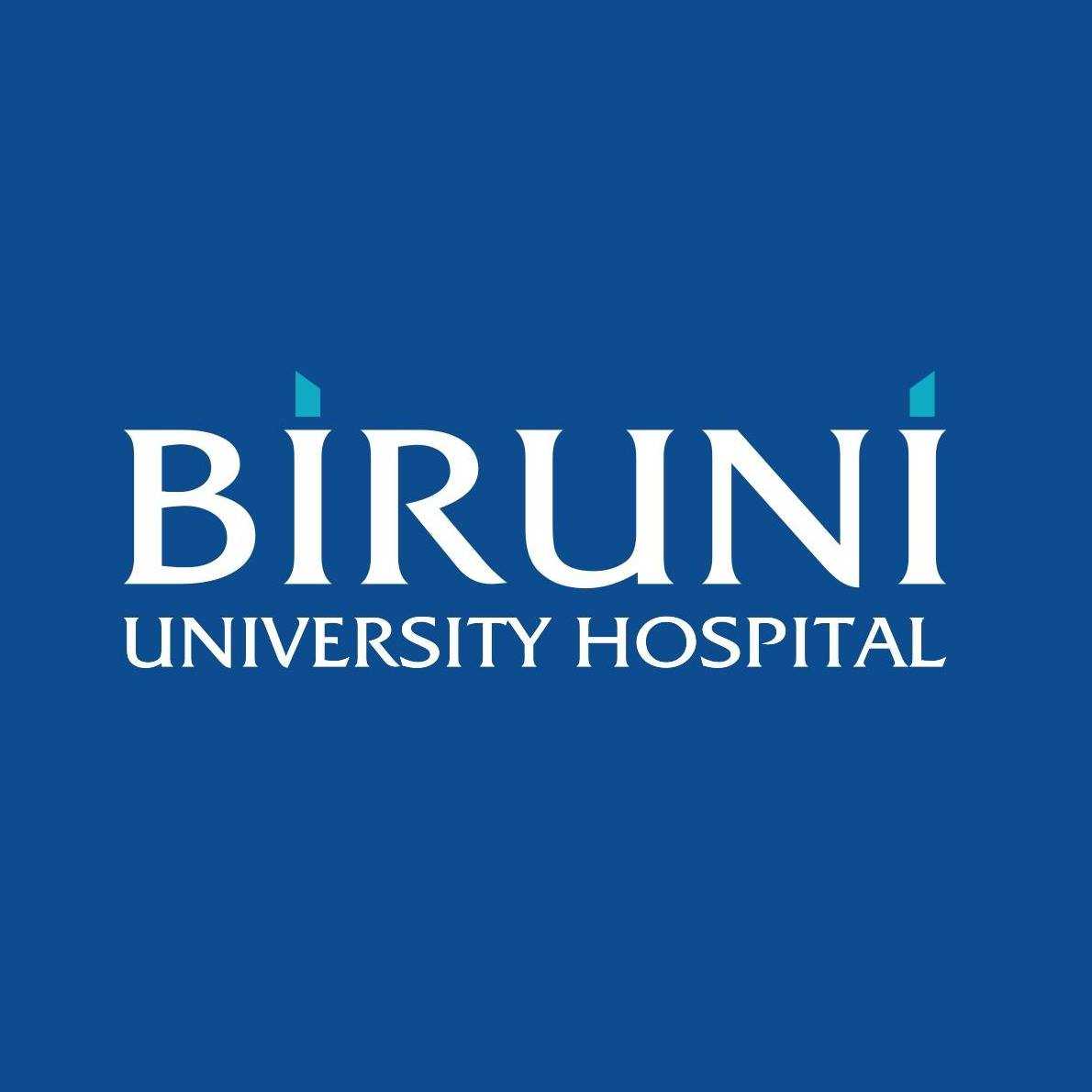Gastric Balloon Turkey: Your Non-Surgical Weight Loss

Considering a gastric balloon in Turkey as a weight loss solution? You're not alone! Many people are exploring this non-surgical option to help them achieve their health goals. The primary question on most people's minds is about safety, and the good news is that getting a gastric balloon in Turkey can be a safe and effective procedure when performed by qualified professionals in accredited clinics. Turkey has become a popular destination for medical tourism, including bariatric procedures, due to its experienced doctors, advanced facilities, and competitive gastric balloon cost Turkey.
This comprehensive guide will walk you through everything you need to know about the safety of gastric balloons in Turkey, what the procedure entails, who is a good candidate, the types of balloons available, potential risks, expected results, and how to choose the right clinic. We aim to answer your most pressing questions, drawing from common queries found on AI platforms, forums, and search engines, to provide you with the clarity and confidence you need.
Is it truly safe to get a gastric balloon in Turkey?
"Yes, getting a gastric balloon in Turkey is generally considered safe when performed at reputable clinics by experienced and qualified gastroenterologists or bariatric surgeons. Many Turkish clinics adhere to international healthcare standards and utilize modern medical technology."
Turkey has heavily invested in its healthcare infrastructure, with many hospitals and clinics achieving international accreditations like JCI (Joint Commission International). This signifies a commitment to high standards of patient care and safety. Surgeons specializing in bariatric procedures in Turkey often have extensive experience and are well-versed in the latest techniques for gastric balloon placement and removal.
However, like any medical procedure, it's not without potential risks. The key to ensuring safety lies in thorough research: choosing an accredited clinic, verifying your doctor's credentials and experience, and having a detailed consultation to understand if the procedure is right for you. Patient reviews and testimonials can also offer valuable insights into the quality of care and gastric balloon Turkey reviews.
What exactly is a gastric balloon and how does it aid in weight loss?
"A gastric balloon, also known as an intragastric balloon, is a non-surgical, temporary weight loss device. It's a soft, inflatable silicone balloon that is endoscopically inserted into the stomach and then filled with saline solution (or air, in some types), taking up space to promote a feeling of fullness, reduce hunger, and encourage smaller meal portions."
The primary mechanism by which a gastric balloon works is by restricting the amount of food your stomach can hold. With less available space, you feel satiated with smaller quantities of food. This caloric restriction, combined with a commitment to dietary changes and increased physical activity, leads to weight loss. The balloon also slows down the rate at which food empties from the stomach, prolonging the feeling of fullness.
It's important to understand that the gastric balloon is a tool to kickstart weight loss and help instill healthier eating habits. Its success is highly dependent on the patient's adherence to a recommended diet and lifestyle program, both while the balloon is in place and after its removal. It's not a permanent fix but rather a supportive measure for a specific period (usually 6 to 12 months).
Who is an ideal candidate for a gastric balloon procedure in Turkey?
"Ideal candidates for a gastric balloon in Turkey are typically individuals with a Body Mass Index (BMI) between 27 and 40 who have not achieved significant weight loss through diet and exercise alone, and who are looking for a non-surgical weight loss intervention. They should also be committed to making long-term lifestyle changes."
Specific eligibility criteria for a gastric balloon procedure often include:
- BMI Range: Generally, a BMI of 27-35 or 30-40 is targeted, depending on the type of balloon and clinic guidelines. It's often for individuals who may not qualify for or do not wish to undergo more invasive bariatric surgery.
- Age: Typically, patients are between 18 and 65 years old.
- Previous Surgeries: Individuals who have had previous stomach or esophageal surgery may not be suitable candidates due to increased risks.
- Medical Conditions: Certain conditions like active peptic ulcers, large hiatal hernias, inflammatory bowel disease (e.g., Crohn's disease), severe liver disease, or clotting disorders can be contraindications.
- Pregnancy: The procedure is not suitable for pregnant women or those planning pregnancy shortly after.
- Commitment: Patients must be willing to participate in a medically supervised diet and behavior modification program.
A thorough medical evaluation and consultation with a Turkish bariatric specialist are crucial to determine if a gastric balloon is the right and safe option for your specific health profile and weight loss goals.
What are the different types of gastric balloons available in Turkey?
"Clinics in Turkey offer various types of gastric balloons, including those that last for 6 months (like Orbera® or Medsil®) and adjustable or longer-duration balloons (like Spatz3® which can last up to 12 months). Some newer options include swallowable gastric balloon capsules (e.g., Allurion, formerly Elipse™)."
The choice of gastric balloon can depend on your specific needs, weight loss goals, and the doctor's recommendation. Here’s a brief overview:
- Standard 6-Month Balloons (e.g., Orbera®, Medsil®): These are endoscopically placed and filled with saline. They are designed to stay in the stomach for six months before being endoscopically removed. They are a well-established option for non-surgical weight loss.
- Adjustable 12-Month Balloons (e.g., Spatz3®): This type of balloon can also be placed endoscopically and can remain in the stomach for up to 12 months. A key feature is its adjustability; the volume of saline can be increased or decreased endoscopically during the treatment period to enhance comfort or effectiveness.
- Swallowable Gastric Balloons (e.g., Allurion/Elipse™): This is a newer, "procedureless" option. The patient swallows a capsule containing the deflated balloon, which is attached to a thin catheter. Once in the stomach (confirmed by X-ray), the balloon is filled with saline via the catheter, and the catheter is then detached and removed. This balloon typically passes naturally after approximately 4 months. It doesn't require endoscopy for placement or removal in most cases, making it a less invasive choice.
Discussing the pros and cons of each type with your doctor in Turkey will help you select the most suitable and safe gastric balloon for your circumstances.
How much does a gastric balloon procedure typically cost in Turkey?
"The cost of a gastric balloon in Turkey typically ranges from €1,500 to €3,500 (approximately $1,600 to $3,800 USD), depending on the type of balloon used, the clinic's reputation, the surgeon's experience, and what's included in the package."
This price is often significantly lower than in many Western European countries or the United States, making Turkey an attractive option for medical tourists seeking affordable weight loss solutions. The gastric balloon cost Turkey can vary based on:
- Type of Balloon: Swallowable balloons or adjustable balloons might have different price points compared to standard 6-month balloons.
- Clinic and Surgeon: Highly renowned clinics and surgeons with extensive experience may charge more.
- Package Inclusions: Some packages are all-inclusive, covering the procedure, pre-operative tests, post-operative care, medication, and sometimes even accommodation and transfers.
- Location: Prices might vary slightly between major cities like Istanbul, Izmir, or Antalya.
It's crucial to get a detailed quote that outlines all costs involved to avoid any surprises. Always prioritize quality and safety over the cheapest option.
What is usually included in a gastric balloon package in Turkey?
"Gastric balloon packages in Turkey often include the cost of the balloon itself, the endoscopic placement and removal procedures, doctor's fees, pre-operative consultations and tests, initial medications, and sometimes post-procedure dietary support. Some clinics also offer airport transfers and accommodation assistance."
When comparing gastric balloon cost Turkey, it's important to understand exactly what each package includes. A comprehensive package might cover:
- Initial Consultation: Assessment by the bariatric specialist.
- Pre-procedure Tests: Blood tests, endoscopy (if required before placement to check stomach suitability).
- Gastric Balloon Device: The cost of the specific balloon chosen.
- Placement Procedure: Endoscopic insertion, usually under sedation or light anesthesia.
- Hospital/Clinic Fees: For the day of the procedure.
- Removal Procedure: Endoscopic removal of the balloon at the end of its term (unless it's a swallowable type that passes naturally).
- Surgeon and Anesthetist Fees.
- Initial Medications: To manage potential side effects like nausea or pain.
- Dietitian Consultation: Guidance on the post-procedure diet.
- Follow-up Appointments: In-person or virtual.
Some clinics catering to international patients may also include airport pickup and drop-off, hotel bookings, and translation services. Always clarify these details beforehand to ensure a smooth and safe experience.
How do I choose the best clinic and doctor for a gastric balloon in Turkey?
"To choose the best clinic and doctor for a gastric balloon in Turkey, research clinics with international accreditations, verify the doctor's specialty in gastroenterology or bariatric surgery and their experience with gastric balloons, read patient reviews, and schedule a detailed consultation to assess their approach and communication."
Making an informed decision is crucial for your safety and the success of the procedure. Consider these factors:
- Accreditation: Look for clinics accredited by reputable international bodies (e.g., JCI, ISO). This indicates adherence to high quality and safety standards.
- Doctor's Credentials: Ensure the doctor is a board-certified gastroenterologist or bariatric surgeon with specific training and significant experience in performing gastric balloon placements and removals. Ask about the number of procedures they've performed.
- Clinic Facilities: Modern equipment and a clean, professional environment are important.
- Patient Reviews and Testimonials: Look for feedback on independent platforms, forums, and the clinic's website. Pay attention to comments about gastric balloon Turkey reviews, patient care, results, and aftercare.
- Communication: The clinic staff and doctor should be responsive, transparent, and able to answer all your questions clearly, preferably in a language you are comfortable with.
- Consultation: A thorough pre-procedure consultation (even if virtual initially) is essential. This is your opportunity to discuss your medical history, expectations, and any concerns.
- Aftercare Program: Inquire about the post-procedure support, including dietary counseling and follow-up.
Don't hesitate to ask for before-and-after photos of previous patients (while respecting privacy).
What are the qualifications of doctors performing gastric balloon procedures in Turkey?
"Doctors performing gastric balloon procedures in Turkey are typically specialist gastroenterologists or bariatric surgeons. They should have completed specialized medical training in their respective fields, often with additional certifications or fellowships in endoscopy and bariatric interventions."
Reputable Turkish doctors in this field will have:
- A medical degree from a recognized university.
- Specialization in Gastroenterology (for endoscopic procedures) or General Surgery with a sub-specialization or focus on Bariatric Surgery.
- Membership in relevant national and international medical societies.
- Ongoing participation in medical conferences and training to stay updated with the latest advancements in non-surgical weight loss techniques and gastric balloon technology.
- A significant number of gastric balloon procedures performed successfully.
Many doctors in major Turkish cities who cater to international patients also speak English or have translators available, ensuring clear communication. Verifying these qualifications is a key step in ensuring the safety of your gastric balloon procedure in Turkey.
Are clinics for gastric balloons in Turkey internationally accredited?
"Yes, many top-tier clinics and hospitals offering gastric balloons in Turkey hold international accreditations, most notably from the Joint Commission International (JCI). Other accreditations might include ISO certifications or affiliations with respected European or American medical groups."
International accreditation is a strong indicator of a clinic's commitment to quality and patient safety. JCI accreditation, for example, means the facility has undergone rigorous evaluation and meets global standards in areas like patient safety, quality of care, medical expertise, facility management, and infection control.
When researching clinics for your gastric balloon in Turkey, specifically look for these accreditations on their websites or inquire directly. Choosing an accredited facility can provide greater peace of mind regarding the standards of care you will receive. This is a crucial factor when considering medical tourism for weight loss.
What happens during the gastric balloon placement procedure in Turkey?
"The gastric balloon placement in Turkey is a minimally invasive endoscopic procedure, typically taking 20-30 minutes. The patient is usually lightly sedated, a deflated balloon is inserted through the mouth and esophagus into the stomach via an endoscope, and then it's filled with sterile saline solution."
Here's a general outline of the process:
- Preparation: You'll be asked to fast for several hours before the procedure. An initial endoscopic check of your stomach may be performed.
- Sedation: You'll receive light sedation or anesthesia to ensure comfort and relaxation. You won't be fully unconscious but will be sleepy and comfortable.
- Insertion: A thin, flexible tube with a camera (endoscope) is gently passed through your mouth, down your esophagus, and into your stomach.
- Placement: The deflated gastric balloon is then introduced through the endoscope into the stomach.
- Inflation: Once correctly positioned, the balloon is filled with a specific amount of sterile saline solution (typically 400-700ml, depending on the balloon type). The endoscope allows the doctor to visualize this process.
- Completion: The filling tube is detached, and the endoscope is removed. The balloon now floats freely in your stomach.
- Recovery: You'll be monitored for a short period (a few hours) as the sedation wears off before being discharged.
For swallowable balloons, the process involves swallowing a capsule, X-ray confirmation of its position, inflation via a fine catheter, and then catheter removal, all without endoscopy or sedation in most cases. This further enhances the safety profile for suitable candidates.
Is the gastric balloon procedure painful?
"The gastric balloon placement procedure itself is generally not painful as it's performed under sedation. However, some patients may experience discomfort, nausea, vomiting, or abdominal cramping in the first few days after placement as the stomach adjusts to the balloon. These symptoms are usually temporary and manageable with medication."
While the insertion is comfortable due to sedation, the initial period after the gastric balloon is placed can be challenging for some. The stomach may react to the presence of the balloon by trying to "digest" or expel it, leading to:
- Nausea
- Vomiting
- Abdominal cramps or pain
- A feeling of heaviness or bloating
These symptoms are common and typically subside within 3 to 7 days. Your doctor in Turkey will prescribe medications to help manage these side effects, such as anti-emetics (for nausea) and analgesics (for pain). Adhering to the initial liquid diet also helps ease this adjustment period. If symptoms are severe or persistent, it's crucial to contact your clinic.
What is the recovery process like after getting a gastric balloon in Turkey?
"Recovery after a gastric balloon in Turkey is relatively quick. Most patients can return to normal, non-strenuous activities within 1-3 days. The initial few days may involve managing side effects like nausea, after which a gradual transition in diet from liquids to solids occurs over a few weeks."
The immediate gastric balloon recovery focuses on managing early side effects. Here’s what to typically expect:
- First Few Days: This is when nausea, vomiting, and cramping are most likely. You'll be on a liquid diet. Rest is important.
- First Week: Symptoms usually improve significantly. You'll gradually transition from clear liquids to full liquids, then to pureed foods as per your dietitian's guidance.
- Weeks 2-4: Soft foods are introduced, and you'll start establishing your new eating habits with smaller portions.
- Beyond 4 Weeks: You'll typically be on a regular solid food diet, focusing on healthy choices and portion control.
Your clinic in Turkey will provide detailed dietary guidelines and an activity plan. It's vital to follow these instructions for a safe and effective recovery and to maximize weight loss results. Light exercise can usually be resumed once you feel comfortable, often within the first week or two.
How long does the gastric balloon stay in the stomach?
"A gastric balloon typically stays in the stomach for 6 months. Some types, like the Spatz3® adjustable balloon, can remain for up to 12 months. Swallowable balloons, such as the Allurion, are designed to pass naturally after approximately 4 months."
The duration the gastric balloon remains in place is specific to its type:
- 6-Month Balloons (e.g., Orbera®, Medsil®): These are removed via endoscopy after six months. Prolonged placement beyond the recommended period can increase risks like balloon deflation or damage.
- 12-Month Adjustable Balloons (e.g., Spatz3®): Designed for a longer duration of up to one year, allowing for more sustained weight loss support. Also removed endoscopically.
- 4-Month Swallowable Balloons (e.g., Allurion/Elipse™): These balloons have a self-releasing valve and are designed to deflate and pass naturally through the digestive system after about 16 weeks.
The chosen duration depends on your weight loss goals, the doctor's recommendation, and the type of balloon deemed most safe and suitable for you during your consultation in Turkey.
What are the potential risks and complications associated with gastric balloons?
"While generally safe, potential risks and complications of gastric balloons include nausea, vomiting, abdominal pain, acid reflux, balloon deflation or migration (rare), gastric ulceration, or (very rarely) bowel obstruction if a deflated balloon migrates. Serious complications are uncommon when guidelines are followed."
It's important to be aware of the possible, though infrequent, gastric balloon complications:
- Common Side Effects (usually temporary): Nausea, vomiting, cramping, bloating, diarrhea, or constipation. Acid reflux can also occur or worsen.
- Balloon Deflation: Though rare, if the balloon deflates, it could pass into the intestines. If it's too large to pass naturally, it might cause a blockage requiring endoscopic or surgical removal. Most modern balloons are filled with a colored saline solution (e.g., methylene blue) so that if it leaks, your urine will change color, alerting you to contact your doctor.
- Balloon Migration/Obstruction: A deflated or partially deflated balloon moving into the small intestine can cause a blockage.
- Gastric Ulcers or Erosion: Pressure from the balloon can, in rare cases, cause irritation or ulcers in the stomach lining.
- Overinflation: Spontaneous overfilling of the balloon, though rare, can occur and would necessitate early removal.
- Acute Pancreatitis: Extremely rare, but has been reported, possibly due to pressure from the balloon.
- Injury during placement/removal: Minor injury to the esophagus or stomach is possible during endoscopy but is rare with experienced practitioners.
Choosing an experienced doctor and a reputable clinic in Turkey significantly minimizes these gastric balloon risks. Adherence to follow-up appointments and dietary guidelines is also crucial for safety.
What kind of weight loss results can I expect with a gastric balloon from Turkey?
"With a gastric balloon from Turkey, patients can typically expect to lose between 10% to 15% of their total body weight over the 6-month period (or longer for 12-month balloons). Individual weight loss results vary based on adherence to diet, exercise, and lifestyle changes."
The amount of weight you lose depends on several factors:
- Starting Weight/BMI: Those with more excess weight may see larger absolute numbers in weight loss.
- Type and Duration of Balloon: Longer duration balloons might offer more potential for weight loss.
- Adherence to Program: This is the most critical factor. Diligently following the dietary plan provided by your Turkish clinic's dietitian and incorporating regular physical activity are key.
- Individual Metabolism and Body Response.
For example, if someone weighs 100 kg (220 lbs), they might expect to lose 10-15 kg (22-33 lbs) with a 6-month balloon. Many patients also report improvements in obesity-related health conditions, such as better blood sugar control, reduced blood pressure, and improved cholesterol levels. Sustaining this weight loss after the balloon is removed requires a continued commitment to a healthy lifestyle.
What is the success rate of gastric balloon procedures in Turkey?
"The success rate of gastric balloon procedures in Turkey is generally high, with many patients achieving significant weight loss (10-15% of total body weight) and improvements in related health conditions. Success is often defined by achieving this weight loss and maintaining it post-removal, which heavily relies on patient commitment to lifestyle changes."
Gastric balloon success rates in Turkey mirror those seen internationally when performed in quality facilities. "Success" isn't just about the weight lost while the balloon is in; it's also about:
- The adoption of sustainable healthy eating and exercise habits.
- Improvement in obesity-related comorbidities.
- Enhanced quality of life.
Clinics in Turkey that provide comprehensive support, including nutritional counseling and psychological support (if needed), tend to have better long-term gastric balloon success rates. Patient testimonials and clinic statistics can provide some insight, but individual results will always vary. The safety and efficacy are well-documented, making it a viable option for many.
What aftercare and support are provided following a gastric balloon in Turkey?
"Reputable clinics in Turkey provide comprehensive gastric balloon aftercare, including detailed dietary plans, regular follow-up consultations (which can often be done remotely for international patients), and access to dietitians. Some may also offer behavioral support to help patients adapt to lifestyle changes.
Effective aftercare is vital for both the safety and success of your gastric balloon journey. This typically includes:
- Dietary Progression Plan: A structured plan starting from liquids and gradually moving to solids, provided by a dietitian.
- Nutritional Counseling: Guidance on portion control, food choices, and maintaining a balanced diet to maximize weight loss and prevent nutritional deficiencies.
- Regular Follow-ups: Scheduled appointments with your doctor or dietitian to monitor your progress, address any concerns, and adjust your plan if needed. For international patients, these are often conducted via video calls.
- Support for Side Effects: Advice and medication management for any early side effects.
- Guidance for Balloon Removal: Information on when and how the balloon will be removed (if not a swallowable type).
- Post-Removal Plan: Strategies to help you maintain your weight loss and healthy habits after the balloon is out.
Ensure the clinic you choose in Turkey has a robust aftercare program, as this support is crucial for long-term success.
Are there alternatives to gastric balloons for weight loss in Turkey?
"Yes, Turkey offers several alternatives to gastric balloons for weight loss, including other non-surgical options like gastric botox, and surgical procedures such as gastric sleeve (sleeve gastrectomy), gastric bypass, and mini-gastric bypass for individuals with higher BMIs or different needs."
If a gastric balloon isn't the most suitable option for you, or if you're exploring other avenues, Turkish clinics are well-equipped to offer:
- Gastric Botox (Stomach Botox): A non-surgical, endoscopic procedure where Botulinum toxin is injected into the stomach muscles to slow stomach emptying and reduce appetite. It's generally for individuals with a lower BMI who need to lose a smaller amount of weight.
- Gastric Sleeve (Sleeve Gastrectomy): A surgical procedure where a large portion of the stomach is removed, creating a smaller, sleeve-shaped stomach. This is a more permanent solution for significant weight loss.
- Gastric Bypass (Roux-en-Y): A surgical procedure that involves creating a small stomach pouch and rerouting the small intestine to this pouch, restricting food intake and nutrient absorption.
- Mini-Gastric Bypass: A simpler and quicker surgical alternative to the traditional gastric bypass.
Each option has its own set of benefits, risks, eligibility criteria, and cost. A consultation with a bariatric specialist in Turkey can help you understand which weight loss procedure aligns best with your health status and goals.
What questions should I ask my doctor before getting a gastric balloon in Turkey?
"Before getting a gastric balloon in Turkey, ask your doctor about their experience with the specific balloon type, the full cost breakdown, potential risks and how they are managed, expected weight loss, the aftercare program, and what happens if complications arise or if you don't lose enough weight."
To ensure you are well-informed and comfortable with your decision, consider asking your Turkish doctor the following:
- How many gastric balloon procedures have you performed, specifically with the type of balloon you recommend for me?
- What are your complication rates for this procedure?
- Am I a good candidate for a gastric balloon, and why? What are the alternatives for me?
- Which type of gastric balloon do you recommend for me, and why is it the most safe and effective option?
- What is the total cost of the gastric balloon procedure in Turkey, and what exactly does it include (placement, removal, tests, medication, follow-ups)? Are there any hidden costs?
- What are the common side effects I can expect, and how will they be managed?
- What are the serious but rare gastric balloon complications, and how do you handle them?
- What is the typical weight loss range you see in patients like me?
- What does your aftercare program involve? How frequent are follow-ups, especially for international patients?
- What dietary and lifestyle changes will I need to make?
- What happens if the balloon needs to be removed early?
- What support is available if I struggle with the diet or if I'm not losing weight as expected?
- Can you provide references or connect me with past patients (if permissible and with consent)?
A good doctor will welcome your questions and provide clear, honest answers, contributing to a safe and positive experience.
Ready to explore your options for a gastric balloon or other weight loss solutions in Turkey? PlacidWay can help you connect with experienced medical professionals and accredited clinics. Take the first step towards a healthier you today!




.png)




.png)
.png)
.png)
.png)






Share this listing